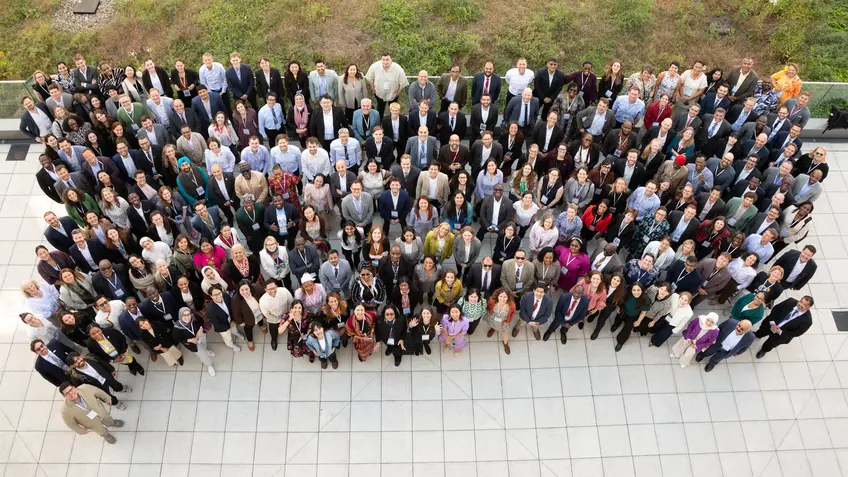Moving From Pledges to Progress: Highlights From the 2025 Global NDC Conference
Nearly 350 participants from over 60 countries convened in Berlin, Germany on 11–13 June for the Global NDC Conference, aiming to foster higher ambition and support rapid implementation and financing of “NDCs 3.0,” the next round of Nationally Determined Contributions.
Now in its fourth edition, the Global NDC Conference has become the leading global conference for dialogue and partnership-building among policymakers, climate experts, practitioners, researchers and other key stakeholders involved in the development and implementation of NDCs. A regular touchpoint for countries and stakeholders to share NDC progress and challenges, the conference is a key platform for surfacing insights on climate governance, finance, transparency and other key aspects of NDCs.
In Berlin, participants engaged in over 30 panel discussions and technical sessions, focused on unlocking opportunities to raise ambition and quickly shift from pledges to progress, mobilizing finance for NDC implementation. Key takeaways included:
- Countries and partners are committed to enhancing ambition and accelerating implementation. While work remains to deliver stronger climate action at the speed and scale required, countries are making progress — strengthening policy frameworks, engaging the whole of society, building national ownership and creating institutional arrangements to mobilize finance and sustain action over the long term.
- Technical solutions and opportunities to accelerate climate action are real, practical and available. Solutions and opportunities to accelerate climate action are everywhere, from new facilities to fast-track project development and deploy climate finance to engaging parliamentarians on climate legislation and advancing whole-of-society approaches to decarbonization.
- Implementing NDCs fundamentally depends on countries’ ability to mobilize finance effectively. To drive transformational change, all types of finance — especially from the private sector — must be deployed strategically to turn NDCs from plans to reality. Countries are taking steps to prepare by developing investment plans and finance strategies, strengthening enabling environments, integrating NDCs into economic and fiscal planning, engaging the private sector and creating financial instruments and project pipelines.
On the first day of the conference, thematic discussions focused on features of a “good NDC” and aligning short-term targets with long-term strategies that achieve net zero and advance national development priorities. Participants explored ways to meaningfully engage the whole of society in the NDC update and implementation processes, highlighting perspectives from youth representatives and Indigenous populations.
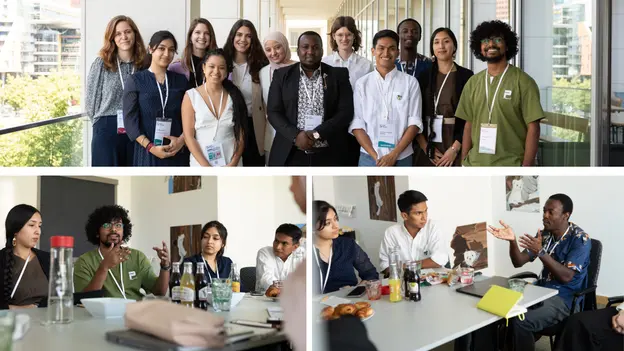
Jochen Flasbarth, State Secretary at the Federal Ministry for the Environment, Climate Action, Nature Conservation and Nuclear Safety of Germany, opened the conference by calling on countries to “counteract the narrative that climate change is a burden” and instead view climate action as a means of economic transformation. “We all need to do more, on the way of transforming our economies and societies towards climate neutrality,” Flasbarth said.
The opening plenary also featured a cultural blessing from Sara Omi with the Emberá People of Panama, President of the Coordination of Territorial Women Leaders of the Mesoamerican Alliance of Peoples and Forests, followed by President of the Senate of Grenada, Dessima Williams. Williams underscored the importance of the NDC process, saying: “For a decade now, the world has been preparing NDCs. These are our commitments to turn away from carbon-intensive activities towards low emission production.” She called on those in the audience to “push for stronger ambition to end the climate crisis.”
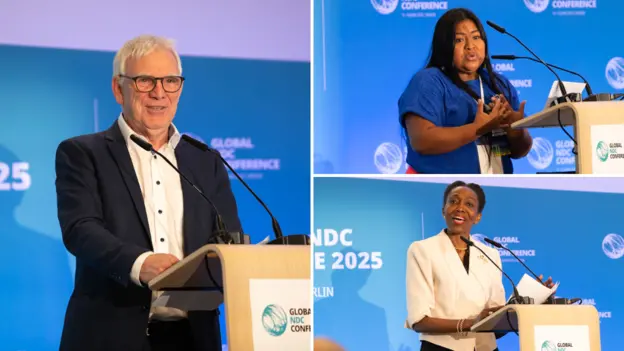
The second day focused on finance for NDC implementation, starting with the launch of a new joint report from the United Nations Development Programme (UNDP) and Organisation for Economic Co-operation and Development, entitled: “Investing in climate for growth and development: The case for enhanced NDCs.” The report highlights how climate ambition can strengthen economic development and outlines priority actions for ensuring NDCS are investable and implementable, including increasing political ownership, aligning national and local development priorities, engaging the private sector, optimizing public finance and collaborating with key stakeholders to enable a just transition.
Following the launch of the report, NDC Partnership Global Director Pablo Vieira shared how countries are making their NDCs more actionable and achievable, paving the way for swift financing and implementation: “Countries are making NDCs more than just headline commitments — increasing the quality and robustness of their NDCs to ensure these commitments are implementable,” Vieira said. “We are seeing countries take steps to ensure ambitious targets are achievable — grounding them in strong country ownership across government and society, with clear implementation structures, costed actions, defined financing sources and policies that create the conditions for investment. Strong NDCs set a clear direction of travel and mobilize the investment needed for implementation.”
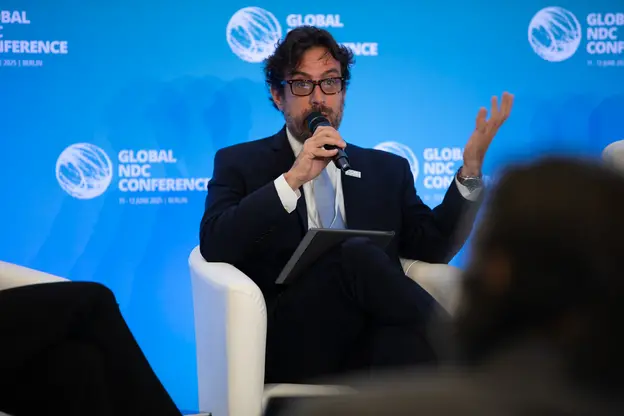
The final day of the conference concluded with a speech from Ana Toni, COP30 CEO and Co-Chair representative for the NDC Partnership, calling on countries and partners to embrace the Brazilian concept of “mutirão,” or global communal effort, ahead of COP30. Toni highlighted the need to accelerate implementation action through inclusive, participatory processes, involving the whole of government and society. Speaking to how the Global NDC conference furthers these goals, she said: "We want to make COP30 very ambitious and at the same time very pragmatic...[The Global NDC Conference 2025] is part of the COP as well, we really need the involvement of everyone in the process."
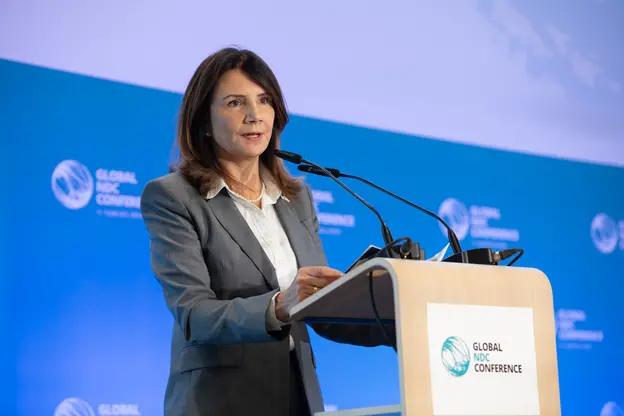
Drawing on the lessons from the Global NDC Conference, countries will continue preparing for rapid implementation of their NDC 3.0 commitments. The NDC Partnership will continue supporting countries to prepare robust NDCs 3.0 ready for implementation..
Supported by the International Climate Initiative (IKI) and hosted by the Federal Government of Germany, the Global NDC Conference is co-organized by the NDC Partnership, the United Nations Development Programme (UNDP) and the Deutsche Gesellschaft für Internationale Zusammenarbeit (GIZ) GmbH.
Learn more about the Global NDC Conference, browse the full agenda and read the latest news and recaps. For more regular updates from the NDC Partnership, sign up for the newsletter here.
